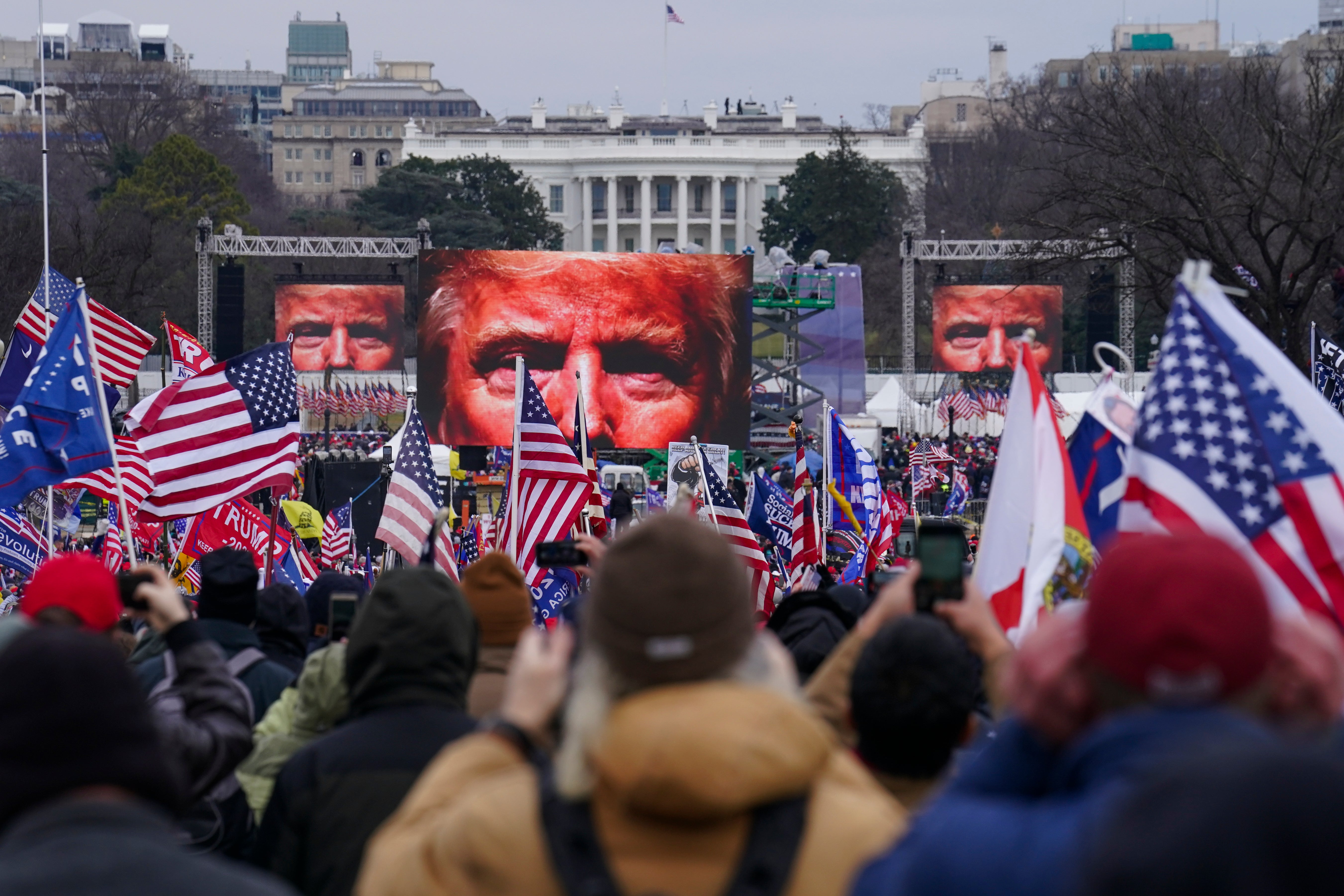As a Reverend, I cannot ignore the influence of Christian nationalism in the January 6 attack
With wooden crosses and the Christian flag in arms, the January 6 rioters sought to undermine our democracy

Two years ago today, I watched in horror as rioters at the US Capitol unleashed violence and bloodshed in one of the gravest attacks on American democracy in history. They laid siege to the bedrock values that undergird our nation, bent on dismantling the United States’ proud tradition of free, fair, and peaceful elections.
For many Americans, the January 6 insurrection was a wake-up call, driving home a very real fear that our divisions could be irreparable, and that the greatest threat to our democratic institutions comes not from a foreign enemy, but from our fellow Americans. The US House Select Committee on the January 6 attack, alongside federal authorities, have since done painstaking work to expose and hold accountable those responsible. From our elected leaders to concerned, everyday Americans, there is a strong consensus that we must prevent such an assault from ever happening again.
We have not, however, fully reckoned with one of the most potent forces that animated the insurrectionists: Christian nationalism. A dangerous political movement that conflates American identity with an exclusive form of religious identity, Christian nationalism upends our constitution’s promise of secular democracy by fusing elements of white supremacy, nativism, patriarchy, authoritarianism. Its adherents are blinded by the belief that they enjoy special favor by God and seek to establish nothing less than a theocracy – at any cost.
While many Americans are coming to understand the threat of Christian nationalism for the first time, it is incumbent upon our leaders to do the same and act now to protect our democracy. The January 6 committee performed an important public service, but its refusal to name the role of Christian nationalism, despite ample evidence and testimony, risks sweeping this clear and present danger under the rug. Preventing further attacks on the integrity of our democratic institutions and our basic ability to live side by side despite our differences requires that we confront this threat head on.
While the insurrectionists were made up of a myriad of racist and far-right extremist groups, the most indelible images from that day were Christian nationalist symbols, which permeated the Capitol grounds. With wooden crosses and the Christian flag in arms, the rioters sought to undermine our democracy and to consolidate political power.
Months later, certain candidates took this as a cue to open the floodgates for Christian nationalist rhetoric on the 2022 campaign trail, catering to the most extreme fringe voices. From Pennsylvania gubernatorial candidate Doug Mastriano’s claim that the separation of church and state is a “myth,” to Rep. Marjorie Taylor Greene’s open embrace of the Christian nationalist label, the American people saw firsthand a new crop of leaders determined to impose their own radical views on the rest of us.
Thankfully, their attempts to mainstream this ideology were roundly rejected by voters nationwide, who united in defense of the idea that in America, the freedom to live and believe as we choose is sacrosanct. Guided by an unshakeable commitment to pluralism, equality, and basic decency, people across diverse faiths and communities organised fiercely, and Christian nationalist candidates overwhelmingly fell short at the ballot box.
Interfaith Alliance, the organisation which I lead, is continuing our work with people from every political and religious background to build a diverse coalition mobilised against Christian nationalism. Devoted to an inclusive vision of religious freedom, we believe that we have a civic and moral obligation to preserve the separation of religion and government.
As a Baptist minister devoted to my faith and my country, I can say with authority that Christian nationalism is neither Christian nor patriotic; it is a blasphemous ideology that completely abandons the Gospel’s values of love, truth, dignity, peace, and justice. To ignore the role of this corrosive ideology as a driving force for anti-democratic violence only leaves the door open for future violence.
Even as a fringe group seeks to subvert our democracy in the name of God, Christian faith leaders in particular have a critical role to play in charting a better path forward, recognising that Christian nationalism undermines not only our democracy, but the very integrity of our faith. Today across from the steps of the Capitol, I am standing side-by-side with many of these fellow leaders to condemn Christian nationalism, mourn those who lost their lives defending our democracy, and call attention to the persistent threat of this dangerous ideology.
Guided by love, humility, and respect for our fellow neighbors, I am hopeful that the American people can continue to flourish side by side and build a nation where all belong.
The Rev. Paul Brandeis Raushenbush is president and CEO of Interfaith Alliance, a national organisation devoted to protecting the integrity of both religion and democracy in America.
Join our commenting forum
Join thought-provoking conversations, follow other Independent readers and see their replies
Comments
Bookmark popover
Removed from bookmarks